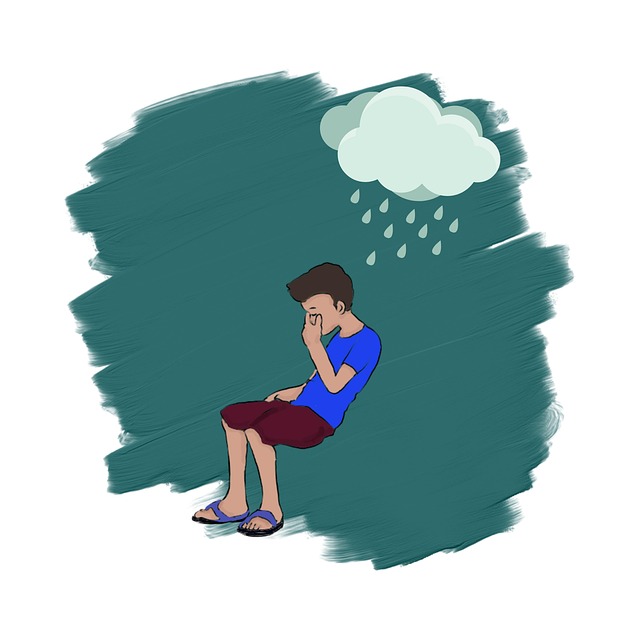Parker Cancer Issues Therapy (PCIT) offers a holistic approach to cancer care by integrating Radiation (R), Chemotherapy (F), and Surgery (M) with a focus on patient resilience, recovery, and mental health (RFM). This strategy enhances quality of life, improves decision-making, and potentially increases survival rates. PCIT combines tailored self-care strategies, resilience-building exercises, and personalized activities for cancer survivors, empowering them to cope with stress, anxiety, and depression while fostering emotional intelligence and fortitude. Continuous monitoring and adjustments ensure the effectiveness of these practices, making PCIT a promising path toward positive patient outcomes. Measuring improvements in mental wellness through follow-up sessions is crucial for refining the RFM strategy.
“Explore the transformative power of Resilient Focused Movement (RFM) in enhancing cancer patient care with our comprehensive guide. This article delves into the role of RFM as a complementary therapy, particularly within the context of Parker Cancer Issues Therapy. We examine its impact on improving patient outcomes and provide a practical step-by-step guide for healthcare professionals to integrate RFM into treatment plans. Discover best practices and learn how to measure the success of RFM implementation, offering valuable insights for optimizing patient resilience during their cancer journey.”
- Understanding RFM: An Overview of its Role in Cancer Therapy
- The Impact of Resilience Building Exercises on Patient Outcomes
- Integrating RFM into Parker Cancer Issues Therapy: A Step-by-Step Guide
- Best Practices for Delivering Effective RFM Programs
- Measuring Success: Evaluating the Efficacy of RFM Implementation
Understanding RFM: An Overview of its Role in Cancer Therapy

Understanding RFM, or Radiation, Chemotherapy, and Surgery, is pivotal in the context of cancer treatment, particularly when it comes to Parker Cancer Issues Therapy. This comprehensive approach to cancer management involves a tailored combination of these modalities based on the specific type and stage of cancer. RFM combines the power of radiation, chemotherapeutic drugs, and surgical interventions to offer patients robust treatment options with potentially better outcomes.
In the realm of self-care routine development for better mental health, coping skills development, and self-care practices, understanding RFM is essential. Patients undergoing these treatments often face significant physical and emotional challenges. Therefore, integrating effective self-care strategies alongside RFM can enhance resilience, improve quality of life, and support patients’ overall well-being during and after cancer therapy.
The Impact of Resilience Building Exercises on Patient Outcomes

Resilience building exercises have been shown to significantly impact patient outcomes, especially in the context of Parker Cancer Issues Therapy. These interventions focus on fostering inner strength development and promoting positive thinking, which are essential components in navigating the challenges that come with a cancer diagnosis. By integrating confidence-boosting activities into treatment plans, patients can better cope with stress, anxiety, and depression, enhancing their overall well-being.
Research indicates that resilience exercises not only improve mental health but also contribute to physical recovery. They empower individuals to view their condition from a more optimistic perspective, enabling them to engage actively in self-care practices. As a result, patients often experience improved quality of life, better decision-making abilities, and increased survival rates. This holistic approach to cancer care recognizes the deep connection between mental and physical health, ultimately leading to more positive patient outcomes.
Integrating RFM into Parker Cancer Issues Therapy: A Step-by-Step Guide

Integrating RFM (Recovery, Resilience, and Mental Health) into Parker Cancer Issues Therapy is a comprehensive process designed to enhance patient well-being and foster a supportive environment. Here’s a step-by-step guide for healthcare professionals aiming to implement these practices:
1. Assess Existing Programs: Begin by evaluating the current offerings of Parker Cancer Issues Therapy to identify areas where RFM principles can be seamlessly integrated. This includes understanding existing mental health education programs and resilience-building exercises, ensuring no overlap or gaps in patient care.
2. Design Personalized Resilience Building Programs: Tailor activities that address burnout prevention for cancer survivors based on their unique needs and preferences. These might include mindfulness workshops, stress management techniques, and support groups facilitating open discussions about emotional challenges. Incorporate these programs into the therapy schedule to create a structured yet flexible framework.
3. Implement Recovery Strategies: Focus on empowering patients with tools to manage physical and mental recovery. This could involve introducing exercise routines suitable for cancer survivors, nutritional guidance, and relaxation techniques to aid in sleep and pain management.
4. Educate Caregivers and Family Members: Mental health education programs designed specifically for caregivers can significantly enhance the overall support system. Educating them on recognizing signs of distress in patients and coping mechanisms fosters a healthier dynamic within families facing cancer.
5. Monitor and Adjust: Regularly assess the impact of RFM integration through patient feedback, tracking mental health metrics, and observing engagement levels. Make necessary adjustments to ensure programs remain effective and aligned with the evolving needs of Parker Cancer Issues Therapy clients.
Best Practices for Delivering Effective RFM Programs

Implementing Effective RFM Programs requires a thoughtful approach and adherence to best practices. One key practice is integrating Parker Cancer Issues Therapy techniques, renowned for fostering resilience among participants. These therapies encourage individuals to confront challenges head-on, building mental fortitude crucial for navigating life’s complexities.
Designing Mental Health Education Programs that go beyond awareness is essential. Engaging exercises focused on cultivating emotional intelligence can significantly enhance an individual’s ability to manage stress and adapt to change. By promoting self-awareness, empathy, and effective communication, these programs empower individuals to lead more fulfilling lives, even in the face of adversity.
Measuring Success: Evaluating the Efficacy of RFM Implementation

Measuring success is a vital aspect when implementing resilience-focused programs like RFM (Recovery and Resilience Model) to combat issues such as cancer. The effectiveness of this approach can be evaluated by assessing improvements in mental wellness among participants over time. Regular follow-up sessions post-intervention can provide valuable insights into the long-term impact on their mental health and ability to manage stress. This data is crucial for refining the RFM strategy, ensuring it addresses the unique challenges individuals face during and after cancer treatment.
By comparing pre- and post-program assessments, therapists and researchers can gauge the success of RFM in reducing symptoms associated with mental illness stigma reduction efforts. This includes measuring changes in stress management skills, emotional well-being, and overall resilience. Such evaluations are essential to demonstrate the program’s efficacy and contribute to evidence-based practices, ultimately benefitting Parker Cancer Issues Therapy and similar initiatives focused on enhancing mental wellness.
The implementation of Resilient Focused Management (RFM) and resilience building exercises in Parker Cancer Issues Therapy offers a comprehensive approach to enhancing patient outcomes. By integrating these strategies, healthcare professionals can empower patients to navigate the challenges of cancer treatment with greater adaptability and strength. The step-by-step guide provided offers a practical framework for effective delivery, while best practices ensure optimal results. Measuring success through efficacy evaluations is crucial to refining these programs and ultimately improving patient resilience during their cancer journey.














